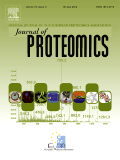
Journal of Proteomics
Scope & Guideline
Exploring the intricate world of proteins.
Introduction
Aims and Scopes
- Comprehensive Proteomic Analyses:
The journal focuses on comprehensive proteomic analyses utilizing advanced techniques such as mass spectrometry, enabling the identification and quantification of proteins in various biological samples. - Multi-Omics Approaches:
There is a significant emphasis on integrating proteomics with other omics technologies (genomics, metabolomics, etc.) to provide a holistic understanding of biological processes and disease mechanisms. - Disease Mechanisms and Biomarker Discovery:
Research published in the journal often aims at elucidating disease mechanisms and identifying potential biomarkers for various conditions, including cancers, metabolic disorders, and infectious diseases. - Innovative Methodologies:
The journal encourages the development and application of novel proteomic methodologies, including advanced labeling techniques, data-independent acquisition, and machine learning approaches for data analysis. - Functional Proteomics:
There is a strong focus on functional proteomics, exploring protein interactions, modifications, and their roles in cellular processes and disease pathology. - Comparative Proteomics:
The journal publishes studies that involve comparative analyses of proteomes across different species, conditions, or treatments, contributing to evolutionary biology and translational research.
Trending and Emerging
- Machine Learning and Computational Proteomics:
There is an increasing trend towards the application of machine learning and computational techniques in proteomics for data analysis, modeling, and predicting protein interactions and functions. - Clinical Applications and Translational Research:
Research aimed at clinical applications, particularly in biomarker discovery for diseases such as cancer, metabolic disorders, and neurological diseases, is on the rise, emphasizing the importance of proteomics in personalized medicine. - Environmental and Ecological Proteomics:
Emerging studies are focusing on the proteomic responses of organisms to environmental stressors, showcasing the application of proteomics in ecology and environmental science. - Proteomics in Regenerative Medicine and Stem Cell Research:
There is a growing interest in the role of proteomics in regenerative medicine and stem cell research, exploring how protein expression profiles can inform cell differentiation and tissue engineering. - Functional and Structural Proteomics:
The journal is seeing a rise in studies that explore the functional and structural aspects of proteins, including post-translational modifications and protein-protein interactions, which are crucial for understanding biological processes.
Declining or Waning
- Basic Protein Characterization:
There has been a noticeable decrease in studies focused solely on basic protein characterization without a clear application or connection to disease mechanisms or functional insights. - Single-Omics Studies:
Research solely focused on proteomics without integration with other omics approaches is becoming less common, as the trend moves toward multi-omics studies that provide more comprehensive insights. - Traditional Proteomic Techniques:
The reliance on traditional proteomic techniques, such as two-dimensional gel electrophoresis, appears to be waning in favor of more advanced and high-throughput methods, including mass spectrometry-based techniques. - Descriptive Studies:
There is a decline in purely descriptive studies that lack hypothesis-driven research or significant biological implications, as the field moves towards more application-oriented research.
Similar Journals

Proteome Science
Innovating Biological Insights Through ProteomicsProteome Science is an esteemed academic journal specializing in the field of proteomics, providing a platform for advanced research and discussions surrounding the structure, function, and dynamics of proteins in biological systems. Published by BMC, a reputable publisher recognized for its commitment to open-access publishing, Proteome Science has been disseminating pivotal research findings since its inception in 2003. Targeted towards researchers, professionals, and students in biochemistry and molecular biology, the journal aims to foster collaboration and innovation within the scientific community. While it currently holds a Q3 quartile ranking in both Biochemistry and Molecular Biology categories, its impactful contributions to the field are reflected in its accessibility, as evidenced by its open access policy. By embracing collaborative research methodologies and providing a platform for novel findings, Proteome Science plays a crucial role in advancing the understanding of proteomic analyses, catering to a global audience that values groundbreaking scientific discovery.

Proteomes, published by MDPI since 2013, is a notable open access journal that occupies a critical place in the realms of Biochemistry, Clinical Biochemistry, Molecular Biology, and Structural Biology. Based in Switzerland, this journal not only promotes the dissemination of high-quality research pertaining to protein structures and functions but also emphasizes interdisciplinary approaches that bridge various fields of biomedical science. With a Category Quartile ranking of Q2 across multiple pertinent categories in 2023, Proteomes boasts a competitive impact within the scientific community, evidenced by its robust Scopus rankings. Researchers, professionals, and students are invited to explore a wealth of pioneering studies and reviews that are made freely accessible, aligning with global trends in open scientific communication. Whether contributing original research or seeking to expand their knowledge, the journal serves as an invaluable resource for anyone engaged in the evolving landscape of proteomics.
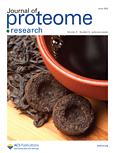
JOURNAL OF PROTEOME RESEARCH
Unveiling the Secrets of Protein InteractionsJOURNAL OF PROTEOME RESEARCH is a premier publication in the field of proteomics, disseminating cutting-edge research and methodologies that drive advancements in biochemistry and molecular biology. Published by the American Chemical Society, this esteemed journal boasts a robust impact, as evidenced by its Q1 rankings in both Biochemistry and miscellaneous Chemistry categories for 2023. With a reputation bolstered by a solid Scopus ranking—#64 out of 408 in General Chemistry and #80 out of 438 in Biochemistry—the journal serves as an essential resource for researchers, professionals, and students aiming to deepen their understanding of protein functions and interactions in biological systems. Although it does not operate under an open-access model, the JOURNAL OF PROTEOME RESEARCH remains a critical platform for scholarly discourse, committed to publishing high-quality, peer-reviewed articles through 2024 and beyond. Scholars are encouraged to engage with the pioneering studies and reviews that shape the future of proteomics.

BIOCHEMICAL AND BIOPHYSICAL RESEARCH COMMUNICATIONS
Pioneering research for a deeper understanding of life sciences.BIOCHEMICAL AND BIOPHYSICAL RESEARCH COMMUNICATIONS, published by Academic Press Inc Elsevier Science, stands as a leading periodical in the fields of biochemistry, biophysics, cell biology, and molecular biology. With an ISSN of 0006-291X and an E-ISSN of 1090-2104, this esteemed journal has been a pivotal platform for the dissemination of groundbreaking research since its inception in 1959, continuing to publish influential findings through at least 2024. It holds a commendable Q2 ranking in Biochemistry and Q1 status in Biophysics as of 2023, reflecting its high impact and relevance in the field, supported by its strong Scopus rankings—ranking #43 in Biophysics and maintaining a presence in the top quartiles of several related categories. Although it is not an open-access journal, it provides critical insights and essential data that cater to researchers, professionals, and students keen on advancing their understanding of complex biochemical and biophysical processes. Its significant contributions to the scientific community underscore the importance of this journal as a reference point for innovative research and collaborative discourse.
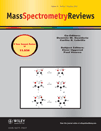
MASS SPECTROMETRY REVIEWS
Pioneering Discoveries in Biochemistry and BeyondMASS SPECTROMETRY REVIEWS, published by Wiley, is a premier academic journal dedicated to advancing the field of mass spectrometry and its applications across a multitude of scientific disciplines. With an ISSN of 0277-7037 and an E-ISSN of 1098-2787, the journal has established itself as a vital resource within the realms of Analytical Chemistry, Biochemistry, Genetics, Condensed Matter Physics, and Spectroscopy, achieving Q1 status across these categories in 2023. As a testament to its significant contribution to scholarly research, it boasts impressive Scopus rankings, including a rank of #2 out of 76 in Chemistry - Spectroscopy and #4 out of 156 in Chemistry - Analytical Chemistry, placing it in the 97th percentile and above. Emphasizing high-quality, peer-reviewed research, MASS SPECTROMETRY REVIEWS serves as an essential platform for researchers, professionals, and students aiming to stay abreast of cutting-edge developments and methodologies in mass spectrometry. The journal is committed to fostering a deeper understanding of mass spectrometric techniques while also contributing to interdisciplinary advancements, making it a valuable addition to any academic library. Authors seeking to disseminate their work in a journal with a strong reputation and impact in the scientific community will find MASS SPECTROMETRY REVIEWS an ideal venue.
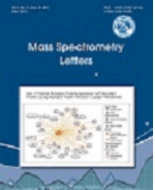
Mass Spectrometry Letters
Advancing Mass Spectrometry Knowledge for All.Mass Spectrometry Letters is a pioneering open-access journal published by the Korean Society for Mass Spectrometry, specializing in the diverse fields of analytical chemistry, biochemistry, and spectroscopy. Established in 2010, this journal aims to disseminate groundbreaking research and advancements in mass spectrometry and its applications across various scientific domains. Though currently categorized in the Q4 quartile in key analytical fields, Mass Spectrometry Letters serves as an essential platform for researchers, professionals, and students to share innovative methodologies, emerging trends, and practical applications of mass spectrometry, thus fostering collaboration and advancing knowledge in the scientific community. With a commitment to open access, articles published since 2010 are readily available, enabling widespread distribution and engagement within the international research community. Located in Daejeon, South Korea, and actively converging research through 2024, the journal holds the potential to grow its impact and relevance within the dynamic landscape of mass spectrometry.

Comparative Biochemistry and Physiology D-Genomics & Proteomics
Pioneering Research at the Intersection of Genomics and ProteomicsComparative Biochemistry and Physiology D-Genomics & Proteomics, published by Elsevier Science Inc, is a premier journal in the realm of molecular biology and comparative physiology, with a focus on genomic and proteomic sciences. Recognized for its high-impact contributions, it holds a Q1 ranking in Animal Science and Zoology and was established with the vision of bridging gaps in our understanding of biological systems through experimental and comparative approaches. With an impressive Scopus ranking, this journal not only ranks among the top 12% in Animal Science and Zoology but also demonstrates commendable standings across various categories including Aquatic Science and Molecular Biology. The journal’s commitment to disseminating high-quality research makes it an essential resource for researchers, professionals, and students alike, allowing them to access critical studies that influence advancements in genomics and proteomics. While it operates under a traditional subscription model, its impactful findings are crucial for those aiming to enrich their knowledge and research capabilities in these pivotal scientific fields. Join us in exploring the transformative insights and developments that this esteemed journal has to offer for the study of genomics and proteomics.

Clinical Proteomics
Exploring the Frontiers of Proteomics in MedicineClinical Proteomics is a leading open-access journal, published by BMC since 2011, that aims to advance the field of proteomics by providing a platform for the dissemination of original research, critical reviews, and technological advancements in the analysis of proteins and their roles in health and disease. With an ISSN of 1542-6416 and E-ISSN 1559-0275, this esteemed journal covers a broad scope, converging years of research from 2004 to 2024. As a distinguished publication, it holds a Q1 ranking in Clinical Biochemistry and Q2 in both Molecular Biology and Molecular Medicine, reflecting its significance in the scientific community. Clinical Proteomics' commitment to open access ensures that its content is readily available to researchers, professionals, and students worldwide, facilitating the exchange of knowledge and fostering collaborative efforts in proteomic studies. Situated in the United Kingdom, this journal plays a pivotal role in shaping the future of biomedical research, appealing to anyone keen on the integration of proteomics in clinical practice and molecular investigation.
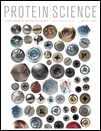
PROTEIN SCIENCE
Elevating Knowledge in Protein Science and ApplicationsPROTEIN SCIENCE, published by Wiley, is a premier journal dedicated to the field of biochemistry, molecular biology, and medicine, boasting an impressive impact factor that reflects its influence and importance within the academic community. Established in 1992, the journal has continuously provided a platform for high-quality research, with a current classification in the top quartile (Q1) for its critical contributions to the understanding of protein structure and function, as well as its applications in health and disease. With a Scopus ranking placing it in the 91st percentile among its peers, PROTEIN SCIENCE publishes cutting-edge studies and reviews that are essential for researchers, professionals, and students seeking to advance their knowledge in protein research. Although it does not currently offer open access options, the journal remains dedicated to disseminating vital findings that support the ongoing advancements in molecular biology and biochemistry. Researchers can count on PROTEIN SCIENCE for consistently rigorous peer-reviewed content that fosters meaningful dialog and innovation in the life sciences.

Frontiers in Molecular Biosciences
Pioneering Discoveries in Biochemistry and GeneticsFrontiers in Molecular Biosciences is an esteemed open-access journal published by FRONTIERS MEDIA SA, based in Switzerland. Since its inception in 2014, the journal has made significant strides in the fields of biochemistry, genetics, and molecular biology, cementing its reputation with a solid position in the Q1 quartile for both Biochemistry and Genetics and Molecular Biology (miscellaneous) categories as of 2023. With a remarkable Scopus rank of #14/103 in the combined categories, it offers an essential platform for the dissemination of high-quality research that shapes the understanding of molecular processes and their implications in health and disease. The journal’s commitment to open access facilitates the broadest possible reach for groundbreaking discoveries, serving as a vital resource for researchers, professionals, and students alike. Located at AVENUE DU TRIBUNAL FEDERAL 34, LAUSANNE, this journal continues to foster innovative discussions and advancements in molecular biosciences, paving the way for new insights and collaborations in the scientific community.